World Breastfeeding Week is a beautiful reminder of those quiet (and sometimes chaotic!) moments spent feeding your baby. Whether you’re exclusively breastfeeding, expressing, mixed feeding, or still figuring it all out you’re doing an incredible job.
As a midwife and mum of four (with another bub on the way!), I know firsthand how complex breastfeeding can be. It’s not always as simple as it looks in the pamphlets, and that’s okay. Let’s break down a few practical tips that can support your journey because every drop counts, and every experience is valid.
1. Education during pregnancy
The correct, evidence based information about breastfeeding, how it works and the importance of early initiation are so important in starting off your breastfeeding to a good start. One Mama Midwife Antenatal Classes cover everything you need to know about breastfeeding and initiating in the early days.
2. Start in the Golden Hour
The first hour after birth is powerful for both bonding and breastfeeding. Skin-to-skin contact helps babies regulate their temperature, heart rate, and initiate their first feed instinctively. Whether you’ve birthed vaginally or via caesarean prioritising skin-to-skin in the first hour after birth can make a difference.
3. Antenatal colostrum expressing
From 37 weeks, antenatal expressing can be a great way to prepare your body for breastfeeding. Not only does it help you become familiar with your breasts and hand expression, but it also gives you a little stash of colostrum for those early days if bub needs a top-up. (Always check with your care provider before starting.)
4. Use Your Tools
A Haakaa or Ladybug can be game-changers in those early days. They’re gentle, hands-free, and perfect for collecting that liquid gold during letdown, ensuring that no drop is wasted!
5. Cluster Feeding is Normal (and Temporary)
Those marathon evenings of constant feeding? It’s called cluster feeding, and it’s your baby’s way of boosting your breastmilk supply. This occurs when your baby will have lots of short, frequent feeds that are often overnight when your prolactin level (your milk making hormone) is at it’s highest. It can feel exhausting, but it doesn’t last forever. It’s important to alternate with your partner, seek support if you need, get comfy, stay hydrated, and rest as much as possible when you can.
6. You’re Not Alone
Breastfeeding isn’t meant to be done in isolation and it can be very challenging, especially in the first few weeks. Whether it’s a lactation consultant, midwife, support group or a friend, it is important to seek the correct advice and support. It is also important to remember that if breastfeeding doesn’t work out the way you’d planned, that’s okay too. Nourishment comes in many forms, and your mental health is important.
You are seen, you are supported, and you are doing an amazing job!
Written by Lauren Brenton
Endorsed Midwife, Founder One Mama Midwife Pty Ltd










World Breastfeeding Week